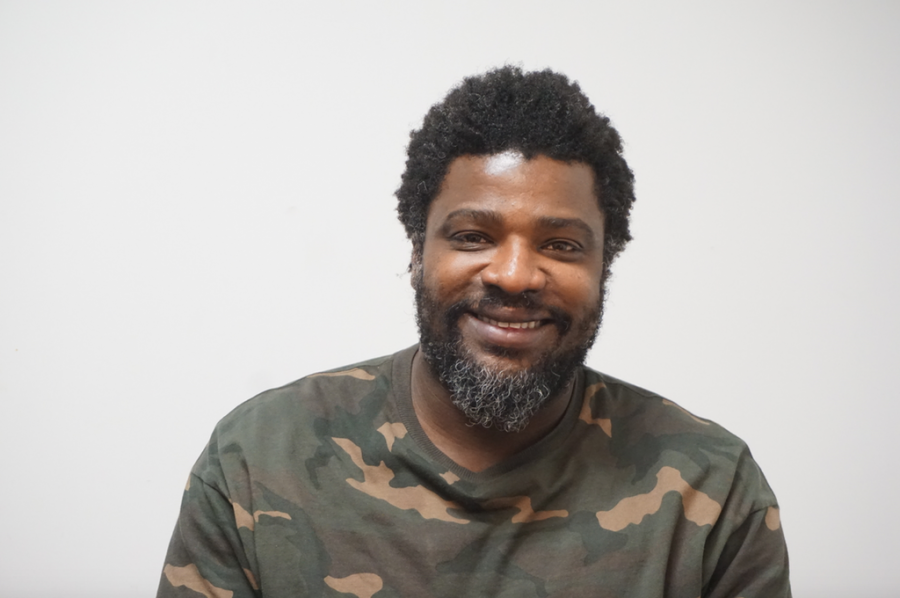This NYU Admin Was Incarcerated at 17, Now He Wants the University to Ban the Box
Kingsley Rowe is an administrator for the NYU Prison Education Program.
April 15, 2016
Reentry Program Administrator for the NYU Prison Education Program Kingsley Rowe has used his experiences with the criminal justice system to help incarcerated individuals assimilate back into society and continue their education. Rowe was released from prison on March 28, 1999, after being incarcerated for 10 years.
Rowe received his associate’s degree from Saint Francis University while in prison, and upon release, applied to NYU to earn his bachelor’s degree. Rowe graduated cum laude from NYU in 2002 with a degree in computer science. Rowe continued his education at NYU by earning his master’s degree at the Silver School of Social Work in 2006.
Rowe spoke to WSN about his involvement in the Ban the Box initiative and his work with the NYU Prison Education Program to ease and increase re-entry into higher education and jobs.
WSN: Would you mind speaking about your experience with the criminal justice system?
KR: When I was 17, I was playing with a gun that my brother had brought in the house. What I should’ve done is told my mother that there was a gun in the house, but I didn’t. And being impetuous, being hyperactive, never having a gun before, [I felt] like taking a gun out of the house was somehow cool, or that it gave me a false sense of courage, or a false sense of being tough. While I took the gun out of the house, I was playing with it and it went off and it killed my friend. I was sentenced to eight to 20 years for 3rd degree murder, and I was also additionally sentenced to five years probation for having a gun. I served 10 years.
WSN: Do you think that universities should have a law for undergraduate applications similar to the Fair Chance Act, where employers do not have to ask about criminal history until after offered the prospective job?
KR: Absolutely. I think what is important is that people aren’t discriminated against because of criminal records. I think someone who comes here to go to school, who has a criminal record, is really coming here to go to school. People who have concerns about the safety of students on campus also have a legitimate concern as well. And so, when taking into consideration ‘banning the box’ and these other initiatives, there should be a way to address parents’ concerns about safety within the ban the box initiative. And I think it absolutely can be done.
WSN: How has your experience in the justice system inspired you to take part in the movement to ‘Ban the Box?’
KR: It’s all about equal access, people being able to have the privilege to go to a school like NYU and not have that not be available because of something they did in their life in the past. I think it’s important for NYU to have a diverse student body that incorporates all these voices; certainly those who are formerly incarcerated have some significant things to contribute to the culture of NYU.
WSN: Do you think NYU needs to go as far as removing the questions concerning disciplinary history from the Common App if they already ignore such information in preliminary stages of the application process?
KR: Yes, they should as long as there is a mechanism that ensures the safety of students in the student body because parents have legitimate concerns about their children in an environment like that. But there’s always room for eliminating all sorts of discrimination; and I wouldn’t say it is per se discrimination, but it could be discriminatory in evaluating the potential student from coming to NYU.
WSN: What is your experience with NYU’s Prison Education Program, and how helpful do you feel it is?
KR: NYU’s Prison Education Program is a program that offers courses going towards an associate’s degree in Wallkill Correctional Facility in upstate New York. I’ve been doing prison reentry for about seven years, and I’ve always been very forward about the role that education played in my life in being this transformative force that allowed me to become a person in full, a citizen in full, allowed me to be self-actualized [and] allowed me to have a career. We have two million people who are currently incarcerated in the United States; those people want to get out. So the question is what do we do with those people? How do we acclimate them to society and empower them to live productive lives? Part of that equation, for me, is education because it played such a crucial role in my life.
WSN: What motivates Ban the Box advocates like yourself to take action?
KR: In this society, if you don’t have any education, you’re relegated to being marginalized; you’re relegated to a position where you don’t have much power to affect the direction of your own life. Education is power. Knowledge is power. Education allows you to be able to determine based on your skills and based on what you’re interested in doing. It allows you to dictate that process instead of having to settle for working in a low-income job that goes nowhere. Education allows you to circumvent those barriers.
What I would like to see out of banning the box movement is an honest and sincere engagement and dialogue with NYU. NYU is not the enemy, and that must be understood. I just would like to see honest, enlightened, open dialogue about the problem. And I think that if people come to the table in that sort of frame of mind, the issue of banning the box can be settled amicably where it would be satisfactory to all parties.
Email Greta Chevance at [email protected].
























































































































































